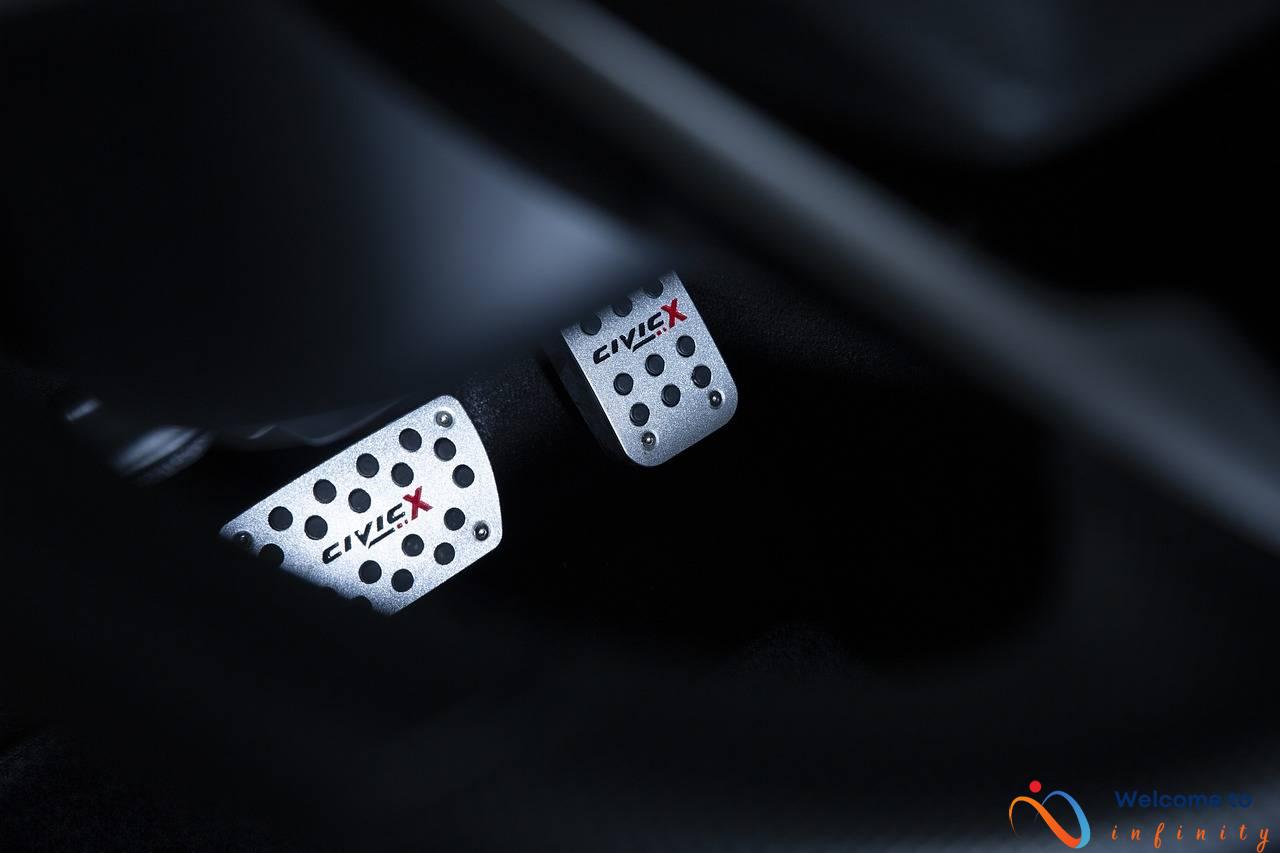As the world becomes more aware of the impact of human activity on the environment, many people are searching for new ways to reduce their carbon footprint. One way to do this is through ecological cleaning. Traditional cleaning products often contain toxic chemicals that can harm both the environment and our health. By using environmentally safe cleaning materials, we not only reduce our impact on the planet but also improve the quality of our indoor air.
You don't have to be an expert to start using eco-friendly cleaning products. In fact, many of these products can be made easily and inexpensively at home using natural ingredients like vinegar, baking soda, and lemon. These ingredients have been used for generations and can be just as effective as their store-bought counterparts. Making your cleaning products is also a way to reduce your dependence on products that come in plastic packaging, which can be difficult to recycle.
Switching to eco-friendly cleaning products can also save you money in the long run. While these products may seem more expensive than traditional cleaning products, they are often concentrated and require less product to achieve the same results. Additionally, the use of natural ingredients means that you can avoid harsh chemicals that may damage surfaces or require extra cleaning materials to remove residue.
Why Use Environmentally Safe Cleaning Materials
Switching to environmentally safe cleaning materials is a simple step that can significantly benefit your home and planet earth. Traditional cleaning products may contain harsh chemicals that not only pollute the environment but also pose health hazards to humans and animals. These chemicals can also affect the quality of indoor air, causing respiratory issues like asthma and allergies.
The most significant impact of traditional cleaning products on the environment is their contribution to water and air pollution. Harmful chemicals present in these products like phosphates, chlorine, and ammonia can accumulate in aquatic life and cause imbalances in the ecosystem. Moreover, these chemicals can remain active in the air and water for an extended period, continuing to harm the environment.
The good news is that you can make a difference by choosing eco-friendly alternatives. Switching to cleaning products made from natural ingredients like vinegar, baking soda, lemon juice, and essential oils can reduce health risks, improve indoor air quality and reduce water and air pollution. These products can be found in most grocery stores today, and you can also make eco-friendly cleaning solutions at home with minimal effort.
- Use baking soda to scrub and deodorize surfaces.
- Vinegar can be used to clean windows, floors, and bathrooms.
- Lemon juice can remove stains and act as a natural bleach.
- Essential oils like tea tree and lavender oil can be added to homemade cleaning solutions for their antibacterial and antifungal properties.
It is essential to note that eco-friendly cleaning materials are not only better for the environment but also for your health. By making this small shift towards green cleaning products, you are making a significant difference in preserving the environment and protecting your family's well-being.
Benefits of Eco-Friendly Cleaning Products
Many people are beginning to switch to eco-friendly cleaning products and for good reason. Using these products can have a positive impact on both the environment and our health. Here are just a few of the benefits:
- Improves Indoor Air Quality: Traditional cleaning products contain chemicals that can be harmful when inhaled, especially for those with respiratory issues. Eco-friendly products contain natural and non-toxic ingredients that improve air quality and reduce the risk of triggering allergies or asthma.
- Reduces Health Problems: Many traditional cleaning products contain ingredients that have been linked to several health problems, including cancer, reproductive issues, and neurological damage. By using eco-friendly products, we are reducing the amount of harmful chemicals we are exposed to and protecting our health.
- Saves Costs in the Long Run: While eco-friendly products may be more expensive upfront, they actually save money in the long run. Traditional cleaning products require more frequent replacement due to their harsh chemical properties, while eco-friendly products are safer for surfaces and last longer.
Overall, making the switch to eco-friendly cleaning products is a smart and responsible choice. Not only are we protecting the environment, but we are also improving our own health and saving money in the long run.
Natural Ingredients for Homemade Cleaning Products
Making your own cleaning products at home using natural ingredients is easy, cost-effective, and environmentally friendly. These natural ingredients are readily available in most households and are safe to use around children and pets.
One of the most versatile natural cleaners is vinegar. It can be used to clean surfaces, deodorize, and remove stains. To make an all-purpose cleaner using vinegar, mix equal parts water and vinegar in a spray bottle. This mixture can be used to clean countertops, floors, and sinks.
Baking soda is another powerful cleaning agent that can be used to remove stains, deodorize carpets, and unclog drains. To make a natural scouring powder, mix equal parts baking soda and water to form a paste. Apply this paste to surfaces and scrub with a sponge or brush.
Lemon is also an effective natural cleaner due to its acidic properties. It can be used to remove stains and grease, and can also be used to freshen up the scent of a room. To make a natural glass cleaner using lemon, mix 1 tablespoon of lemon juice with 1 cup of water in a spray bottle.
Other natural ingredients that can be used in homemade cleaning products include essential oils, hydrogen peroxide, and castile soap. Experiment with different combinations to find the perfect cleaning solution for your needs.
By making your own natural cleaning products, you can reduce your exposure to harmful chemicals found in traditional cleaning products and contribute to a healthier environment.
Recipes for Homemade Cleaners
Switching to eco-friendly cleaning products is a smart decision for both the environment and your health. Not only are traditional cleaning products harmful to the environment, but they can also cause health issues like skin irritation, respiratory problems, and even cancer. Making your cleaning products at home is an effective way to reduce your reliance on commercial products and ensure that you are using safe, natural ingredients.
Here are a few simple recipes for all-purpose and glass cleaners using natural ingredients:
| Recipe | Ingredients | Instructions |
|---|---|---|
| All-Purpose Cleaner | 1 cup water 1 cup distilled white vinegar 10-15 drops essential oil (optional) |
Mix water and white vinegar in a spray bottle. Add essential oil for a pleasant scent. Shake well before using. |
| Glass Cleaner | 1 cup water 1/4 cup distilled white vinegar 1/4 cup rubbing alcohol 1 tablespoon cornstarch 10-15 drops essential oil (optional) |
Mix all ingredients in a spray bottle. Shake well before using. |
For a more natural scrubbing solution, mix baking soda and water to create a paste. This can be used to scrub surfaces like sinks, tubs, and dishes.
Remember to always label your homemade cleaning products and store them in a safe place away from children and pets. Additionally, it is essential to never mix different cleaners together as this can create harmful and toxic fumes.
Precautions to Take with Homemade Cleaners
When making and using homemade cleaners, it's important to take precautions to ensure your safety and the safety of those around you. Here are some tips to follow:
- Always label your homemade cleaners with their ingredients and the date they were made.
- Keep homemade cleaners out of reach of children and pets.
- Wear gloves and protective eyewear when making and using homemade cleaners.
- Mix cleaning solutions in well-ventilated areas to avoid inhaling fumes.
- Do not mix cleaning solutions together, as they may react and create harmful gases.
Additionally, some ingredients commonly used in homemade cleaners can be harmful if not used correctly. For example:
- Vinegar should never be mixed with bleach, as it creates toxic fumes.
- Baking soda can be abrasive and damage some surfaces, such as glass.
- Essential oils should be used in moderation, as they can irritate skin and respiratory systems if overused.
By following these precautions and using natural ingredients in your cleaning solutions, you can create effective and environmentally safe cleaners for your home.
Top Environmentally Safe Cleaning Products on the Market
Switching to environmentally safe cleaning products doesn't mean sacrificing quality or efficacy. In fact, many eco-friendly cleaning brands offer a wide range of effective and affordable options. Here are some of the top environmentally safe cleaning products on the market:
| Brand | Ingredients | Certifications | Where to Find |
|---|---|---|---|
| Seventh Generation | Plant-based ingredients, no synthetic fragrances or dyes | USDA Certified Biobased, Leaping Bunny, B Corporation | Grocery stores, online retailers |
| Mrs. Meyer's Clean Day | Plant-derived ingredients, essential oils | Cruelty-Free, Leaping Bunny | Grocery stores, online retailers |
| Better Life | Plant-based ingredients, no synthetic fragrances or dyes | Grocery stores, online retailers | |
| Ecover | Plant-based ingredients, no synthetic fragrances or dyes | Cruelty-Free International, EU Ecolabel, Leaping Bunny | Grocery stores, online retailers |
| Method | Plant-based ingredients, no synthetic fragrances or dyes | Grocery stores, Target, online retailers |
These brands offer a variety of cleaning products, including all-purpose cleaners, dish soap, laundry detergent, and more. They use natural, biodegradable ingredients that are safe for the environment and for our health. Plus, many of them are certified by third-party organizations that uphold high standards for sustainability and animal welfare.
You can find these eco-friendly cleaning brands at most grocery stores, as well as online retailers. By choosing these products, you're not only reducing your carbon footprint but also supporting companies that prioritize sustainability.
How to Dispose of Cleaning Products Safely
Disposing of cleaning products can be a tricky task if not done properly. Many household cleaners contain toxic chemicals that can harm both people and the environment if not disposed of correctly. Here are some tips on how to dispose of traditional cleaning products and hazardous waste in an eco-friendly way.
- Before throwing any cleaning product away, read the label carefully to determine if it contains hazardous chemicals. Most labels have symbols and instructions regarding disposal. Follow them closely to avoid any harmful effects.
- Some chemicals might require specific disposal methods; thus, it's vital to read and follow the instructions on the label.
- If you have a cleaning product that must be disposed of, try to use it up entirely. Optimize the usage to reduce the amount of waste you generate.
- Using the product in a well-ventilated area can help to minimize exposure to chemicals while at it.
- Most cleaning products come in containers that can be recycled. Do not throw away empty containers before checking if they're recyclable or not.
- Before recycling the container, ensure that it's entirely empty. Rinse the container and let it dry to prevent polluting the recycling stream.
- Some cleaning products are classified as hazardous waste and cannot be thrown away in the regular trash. They have to be disposed of correctly.
- Hazardous waste includes products that have chemicals such as arsenic, benzene, and lead. Contact your local government or waste management facility for guidance on safest disposal methods.
Proper disposal of cleaning products is crucial for our health and the environment. Always prioritize the use of eco-friendly cleaning alternatives, such as homemade cleaners with natural ingredients, to reduce your household's toxic waste and carbon footprint.
Recycling and Reusing Cleaning Products
Recycling and reusing cleaning products is not only an eco-friendly approach but also helps to reduce waste and save money. Here are some ways to recycle and repurpose cleaning containers and tools:
- Reuse empty spray bottles to make your own homemade cleaners.
- Reuse old t-shirts, socks, and towels as cleaning rags instead of using disposable ones.
- Repurpose old toothbrushes as scrub brushes for small or hard-to-reach areas.
- Reuse plastic containers for storage or as planters for small plants.
- Donate gently used cleaning tools to local charities or shelters instead of throwing them away.
- Look for refill options for your cleaning products instead of buying new containers every time.
By incorporating these simple steps into your cleaning routine, you can contribute to a healthier environment and save money at the same time.
The Future of Ecological Cleaning
As our awareness and concern for the environment grow, it is becoming increasingly clear that traditional cleaning methods and products are not sustainable. Thankfully, the future of cleaning is ecological cleaning, which has the potential to become more accessible and mainstream in the coming years.
Many companies are already starting to make the switch to eco-friendly cleaning products and methods. This not only benefits the environment but also our health. By reducing our exposure to harmful chemicals, we can enjoy improved indoor air quality and decrease the risk of long-term health problems.
Moreover, ecological cleaning is also cheaper in the long run. While eco-friendly cleaning products may be more expensive initially, they require less product and have longer lifespans. This can save us money in the long run while also benefitting the environment.
In addition to companies, individuals are also making the switch to ecological cleaning. There are plenty of DIY options that use natural ingredients like baking soda, vinegar, and lemon. By making your own cleaning products, you can reduce plastic waste and have more control over what goes into your cleaning solutions.
As more people start to embrace ecological cleaning, it's possible that traditional cleaning products could become a thing of the past. This could create a ripple effect, leading to improved health and environmental wellness as a whole.
In conclusion, the future of cleaning is looking bright thanks to ecological cleaning. As more individuals and companies make the switch, we can enjoy a cleaner and healthier environment for ourselves and future generations.










